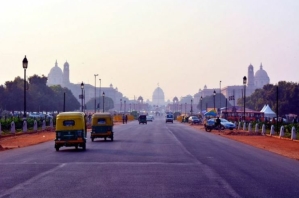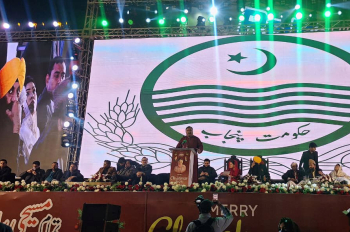
India's Finance Minister Nirmala Sitharaman presented the Modi government's first budget since its narrow election victory earlier this year. The budget, unveiled on 23 July, focuses heavily on job creation, rural development and appeasing key coalition partners in an effort to regain political support, but cuts schemes meant for minority welfare.
The budget allocates $32 billion for rural programmes and $24 billion over five years to create jobs. Sitharaman announced three new schemes to address India's chronic employment challenges, including direct cash transfers to first-time job entrants in the formal sector and employment-linked incentives for both employees and employers in manufacturing.
"In this budget, we particularly focus on employment, skilling, small businesses, and the middle class," Sitharaman stated, emphasising that subsequent budgets would build on these focus areas.
The government has set an ambitious target of creating one crore (10 million) internships through these schemes. However, opposition leaders have criticised this as an arbitrary target designed more for headlines than as a programmatic guarantee.
In a move to satisfy key coalition partners, the budget allocates more than $5 billion for two states ruled by allies. This includes financial support of 150 billion rupees ($1.83 billion) for the development of Andhra Pradesh's capital, with promises of more funding in coming years. Bihar, another state ruled by an ally, will see new airport, road, and power projects.
Despite the increased spending, the government has managed to reduce its fiscal deficit target to 4.9% of gross domestic product for 2024-25, down from the 5.1% projected in February's interim budget. This reduction was made possible by a significant dividend payout of over $25 billion from India's central bank.
The budget also includes several tax changes. Long-term capital gains tax on financial and non-financial assets has been increased to 12.5% from 10%, while short-term capital gains tax has risen to 20% from 15%. These measures are seen as an attempt to address concerns about an overheating equity market.
On the other hand, the corporate tax rate for foreign companies has been reduced from 40% to 35%, a move aimed at attracting more foreign investment. The government has also abolished the angel tax levied on capital raised by private companies, providing relief to the country's burgeoning start-up ecosystem.
For individual taxpayers, the standard deduction for salaried employees under the new income tax regime has been increased to 75,000 rupees ($915) from 50,000 rupees ($610). This, along with other minor tax tweaks, is expected to result in savings of up to 17,500 rupees ($213) for those opting for the new tax regime.
The budget maintains the previously announced capital expenditure on infrastructure creation at 11.11 trillion rupees ($135.5 billion). The government will also offer long-term loans of 1.5 trillion rupees ($18.3 billion) to states to fund such expenditure, with some loans linked to reform milestones in areas such as land and labour.
However, the budget has also come into focus for its treatment of minority affairs. While the overall budget for the Ministry of Minority Affairs saw a modest increase of 2.7%, several specific schemes faced significant cuts. The allocation for coaching and allied schemes for minorities was reduced from 300 million rupees ($3.66 million) to 100 million rupees ($1.22 million). Similarly, the budget for education schemes for Madrasas and minorities was slashed from 100 million rupees ($1.22 million) to 20 million rupees ($244,000). The interest subsidy on educational loans for overseas education for minorities was also reduced.
India's finance ministry expects the economy to grow between 6.5% and 7% in the financial year ending March 2025. While this is lower than the 8.2% growth recorded last year, it still positions India as one of the fastest-growing major economies in the world.
The budget has received mixed reactions. While government allies have praised the focus on development and job creation, opposition leaders have criticised it as "politically biased" and "anti-poor". Congress leader Rahul Gandhi described it as a "Kursi Bachao" (Save the Chair) budget, alleging that it was copied from his party's election manifesto.
West Bengal Chief Minister Mamata Banerjee dubbed the budget as "directionless" and criticised the Centre for "depriving" her state. Other regional leaders have also expressed concerns about the allocation of funds to different states.
Originally published by Christian Today India





